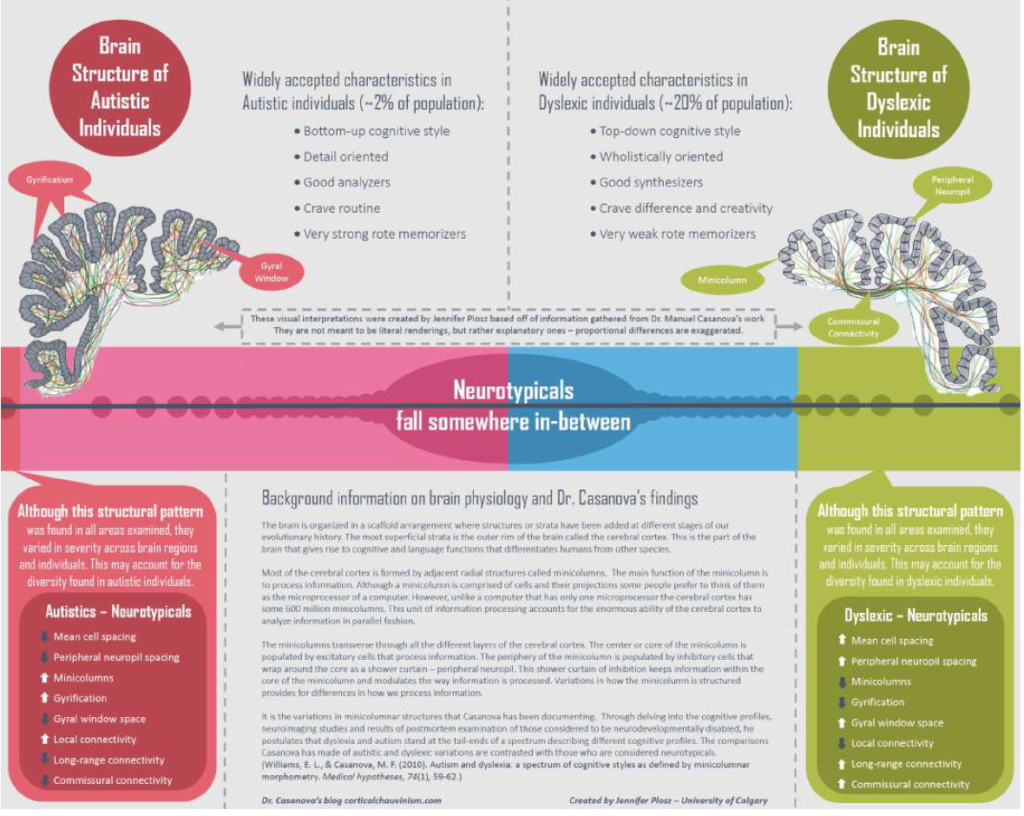Over the years, we’ve met many dyslexic adults with people strengths that span the full range of careers. Sometimes people with strong empathy are drawn to jobs that really need the human touch – whether it’s counseling, nursing or other health professions, or in business, user design, employee or customer relations, sales, or management.
Now there’s a little trickle of research to suggest why dyslexics may excel in people professions.
EMPATHY
Empathy has been defined as an ability to understand and feel with the perspective of another person. The understanding and feeling sides are different things – and it’s possible to be better at one than the other.
Cognitive Empathy
Understanding other people’s thinking from various perspectives is sometimes referred to as cognitive empathy by scientists and persona writing and thinking by those in the writing and design communities.
Philip Schultz, Pulitzer-Prize winning poet of The Writers Studio in New York has spoken about how he uses personas in creative works, and David Kelley, founder of the Design School at Stanford University ( also dyslexic, personal communication) also puts empathy and personas at the center of what he does (human-centered design). His innovative design company, IDEO, disrupted design when it was established in 1991, and it went on to form many inventions like the computer mouse or shopping cart with a child seat and drink holder that we take for granted today.
Strengths in cognitive empathy appear in the business world. One of our past Board members, Erin Egan, who is also dyslexic and shared her story at one of our conferences (below) struggled in school, but discovered her strengths when she was working and interacting with others in corporate negotiations.
Said Harvard Business professor, Michael Wheeler:
“It’s as if Erin has social sonar, a way of seeing the interpersonal cross-currents below the surface and the forces that shape their flow.”
Being able to read the emotions of other people in complex negotiating situations definitely can be an asset and advantage.
Recently, I read an interview with the acting chameleon Paul Bettany. I first saw him in The Master and Commander (vintage sailing movie), then Margin Call (movie about the financial crisis of 2007), the imaginary CIA guy in Beautiful Mind, Vision in the Avengers, and the Unabomber. Now he’s in a stage (soon-tobe- film) production playing Andy Warhol. His ability to play different people is remarkable – but he’s not just observing and imitating, he’s really trying to get into the mind and world of the other person.
When he was initially offered the role of Andy Warhol, he refused it. But he changed his mind after reading Warhol’s diaries. After he knew more about him and understood him, he realized he could take the role (more here).
Contemporary research about dyslexia tends to focus on young children and trouble with reading, but it would be interesting to know more about differences that may exist between dyslexic and non-dyslexic adults. Many adults seem to have significant strengths in cognitive empathy and there are wide implications for this at work.
Interestingly, Williams and Casanova (2010) proposed that dyslexia and autism may exist on an opposite spectrum based on patterns of cortical connectivity.
Jennifer Plosz made a beautiful poster summarizing some of this work and theory and donated the graphic that we have as a poster in our shop.

Although Williams and Casanova didn’t speculate on the the implications for theory of mind, the idea of autism and dyslexia being on the opposite ends of a continuum could suggest that dyslexic strengths in theory of mind (ability to attribute different mental states to others) might be the opposite of autistic people’s theory of mind difficulties.
In other work looking broadly at a range of developmental conditions (Brimo et al., 2021), researchers noted that the presence of autism-associated inflexibility traits was inversely related (or in layman’s terms had an opposite relationship) to dyslexia.
Affective Empathy
Affective empathy describes the biological processes that people undergo when they feel another person’s emotions. Before children are able to put their emotions into words, affective empathy can be seen when one child crying causes another to cry.
In recent research from the University of California, dyslexic children as a group were found to have stronger emotional reactivity than non-dyslexic children.
The same group had found that stronger physiological reactions correlated with better social skills per parent report.
So affective empathy may be a strength for dyslexics – and that could impact day-to-day relationships with friends and family, but also be a real asset in various careers.
At work, dyslexic strengths in affective empathy can present themselves in situations where people need to work closely together. Sensitivity to the feelings of individual team members can help managers and leaders recognize difficulties before they get bigger and make changes to help projects progress smoothly.
Dyslexic team members with social strengths may be able to play “connector” roles in an organization. Empathy and social emotional intelligence can help people recognize different cultures and personalities at play different work groups and help connect groups that can work synergistically together.
Sometimes people skills are referred to as “soft skills” – but these skills are anything but simple. It’s a gift if you have it and you might find if you lean into this strength more exciting opportunities await you.














